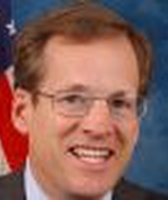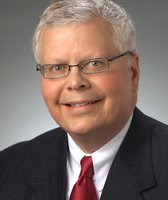Stand up for the facts!
Our only agenda is to publish the truth so you can be an informed participant in democracy.
We need your help.
I would like to contribute

President Barack Obama addresses a joint session of Congress during his 2013 State of the Union address. U.S. Rep. John Barrow, D-Ga., says Congress hasn't spent much time there so far this year. Photo credit: Politico.
Congress away too often, Georgia lawmaker says
Congress has received record-low approval ratings in recent years, thanks largely to the oceanlike divide on issues such as federal spending, taxes and gun control.
One Georgia congressman offered another reason for public scorn.
"On January 3rd, a new Congress convened with a mandate from voters all across this country to work together. Unfortunately, very little has changed. Too many in Congress are unwilling to compromise and do what’s necessary to get this country moving," said John Barrow, a Democratic House member from Augusta. "Sixty-six out of the first 100 days of this Congress have been spent in recess. That’s shameful. While I'd much rather be in Georgia meeting with folks across the 12th District, we have a lot of work to do in Washington."
Barrow, who’s reportedly entertaining a run for the U.S. Senate, went on to say in the letter that he hasn’t been letting the grass grow under his feet during these many absences.
"During those 66 days of recess, I’ve been busy meeting with folks all across the 12th District. I’ve visited with folks and held events in all 19 counties of the 12th Congressional District," Barrow said.
Sign up for PolitiFact texts
PolitiFact Georgia wondered whether Barrow’s claim about Congress being in recess an average of two out of every three days was accurate, or is he trying to score some political points at the expense of his colleagues.
Barrow spokesman RIchard Carbo forwarded us a calendar prepared by the staff of one of the most influential Democrats in the House of Representatives, Steny Hoyer of Maryland. It notes in red each day Congress is scheduled to have votes this year.
As Barrow wrote, the first day of the 113th Congress was Jan. 3, 2013. April 12 would have marked 100 calendar days since this Congress was convened. Hoyer’s calendar shows Congress held sessions to vote on 34 of those 100 days.
We reviewed a Library of Congress calendar and found it had 41 days that Congress had been in session. Carbo explained that the Library of Congress calendar includes "pro forma" days, days when the House met for just a few minutes to conduct procedural matters.
"There are lots of 10-minute sessions where there is no one around," said Norman Ornstein, a resident scholar with the American Enterprise Institute who has done extensive research on the machinations of Congress.
Carbo also asserted "pro forma" sessions are held by the House’s Republican leadership to prevent President Barack Obama, a Democrat, from making appointments while Congress is in recess.
The Congressional Record website shows that the House met for two to five minutes all of those days. The Senate, by our review of the Congressional Record’s information, met 33 of the first 100 days it was in session. Hoyer’s calendar does not include Jan. 21, in which both chambers of Congress were in a special session for the president’s public inauguration.
We wondered whether the number of days Congress was in session the first 100 days of 2013 was disproportionate to past years. PolitiFact Georgia went back 20 years, looking at each odd year since those were years a new Congress was sworn into office. This year was in the middle.
Here is the Library of Congress breakdown, not excluding possible "pro forma" days:
1995: 58 days
2007: 49 days
2009: 48 days
2011: 46 days
2003: 42 days
Featured Fact-check
2013: 41 days
2001: 35 days
2005: 33 days
1999: 33 days
1997: 33 days
Donald Wolfensberger, who worked 28 years for several Republican members of Congress with an expertise in parliamentary rules, offered one reason for the seemingly low number of days this Congress has been in session.
"New Congresses take time to get committees organized and then for them to start cranking out legislation. Slow starts are not unusual," said Wolfensberger, a senior scholar at the Woodrow Wilson International Center for Scholars in Washington.
Ornstein, a columnist who co-wrote a book called "The Broken Branch: How Congress Is Failing America and How to Get It Back on Track," said he has long pushed for a congressional schedule of three weeks in session and one week off. Ornstein had a few ideas why Congress, particularly the Republican-led House, is not interested in meeting much in Washington.
"They have an adversarial relationship with (Obama) and less in common," Ornstein said.
Ornstein offered another reason members of Congress, regardless of party affiliation, may want to spend less time in session: It’s tougher to raise the large sums of money now necessary to stay in office, and being in session takes time away from fundraising.
To sum up, Barrow said Congress spent 66 of the first 100 days of the current session in recess. There were a few additional days the House was in session, albeit very, very short meetings. With that bit of context, we believe Barrow’s claim is Mostly True.
Our Sources
Letter on Barrow’s website.
2013 congressional calendar by U.S. Rep. Steny Hoyer, D-Md.
Congressional Record daily digest.
Emails from Richard Carbo, spokesman for U.S. Rep. John Barrow, April 16 & 18, 2013
Email from Donald Wolfensenberger, senior scholar, Woodrow Wilson International Center for Scholars, April 18, 2013
The Hill, "House forces pro-forma sessions to avoid recess appointments," Aug. 4, 2011.
Library of Congress 2013 calendar.
Telephone interview with Norman Ornstein, resident scholar, American Enterprise Institute, April 17, 2013.
Browse the Truth-O-Meter
More by Eric Stirgus
Congress away too often, Georgia lawmaker says
Support independent fact-checking.
Become a member!
In a world of wild talk and fake news, help us stand up for the facts.

























































